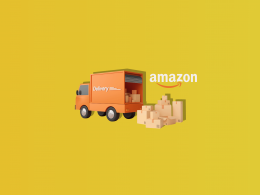Financial decision making isn’t just about crunching numbers or balancing books. It is, in essence, a navigational tool that guides us in making meaningful choices to ultimately drive real progress.
Financial decision making serves as a sort of a grounding compass, focusing our limitless imagination into practical, tangible actions. By viewing our decisions through the lens of income and expenses, we can streamline our choices and work steadily towards achieving our financial goals, which are as diverse as the individuals and businesses pursuing them.
In this guide, we’ll unravel the key steps in the process of financial decision making, including clarifying your goals, ensuring the accuracy of your financial information, setting up your financials for clarity, comparing current financials with your goals, and implementing adjustments. We’ll also explore the essential financial knowledge and skills required to optimize your financial decisions, from reading an income statement to finding a trusted advisor.
So, without further ado, let’s embark on this journey and unlock the power of the financial decision making process.
Contents:
1. Making financial decisions: What it is, and why it is important to make a sound financial decision
2. What financial goals can be reached through making a good financial decision?
3. What are the key steps involved in the process of making a financial decision?
5. What are the biggest benefits a business can expect from making informed financial decisions?
Making financial decisions: What it is, and why it is important to make a sound financial decision
Simply put, making financial decisions is using financial data to guide the choices we make. Namely, our imagination is limitless, which can cause all sorts of problems if we decide to simply chase our dreams and goals without careful financial planning.
For example, have you ever had a big pay-day coming, and dreamt of all the things you could do with that money? Pay down business tradeline debt, buy new equipment, take your family on vacation, set aside a rainy-day fund! Yet, when the money finally arrives, you realize that somehow you can’t do all those things – at least not at once.
As we often dream big and set out to achieve ambitious business or personal plans, we need things that are limited to give us direction, enabling us to make actual progress. Making financial decisions is one way that we can create these limits, allowing us to focus our decisions using income and expenses as lenses.
What financial goals can be reached through making a good financial decision?
The focus that comes through the lens of financial decision-making allows us to achieve financial goals that seem impossible. Every business owner sets out on their business & entrepreneurship journey with some kind of a goal or idea.
That goal can be anything, from being able to put the kids in a private school, or allow one spouse to stay home, to being freed from the rat-race, or solving a big problem, financial, personal, or other.
The best thing about making a well-informed financial decision is that any and all of these things can be achieved through careful decision-making.
What are the key steps involved in the process of making a financial decision?
There are several steps that lead to making an optimal financial decision, including the following:
- Define your goals and determine why they are your goals. The initial decision-making process might look like this:
- What are your big goals?
- I want $1 million dollars in annual revenue.
- Why? – Because then I’ll have enough money.
- For what? – To hire someone else to run the business.
- Why? – Because I want to focus my time on helping poor kids in my town get an education.
This process provides more insight into what you actually want to achieve, allowing you to adjust your goal and business strategy accordingly.
- Make sure that the information you’re getting is accurate. If your books aren’t up-to-date, or if they’ve been done poorly, you can’t make a good financial decision. Looking through a foggy financial lens can be more dangerous than not having a lens at all, especially if you trust it blindly.
- When planning anything, make sure that your financials are set up in a way that allows you to see everything clearly. For instance, if you pay for a lot of clients’ subscriptions, and they get lumped in with your software subscriptions, it’s very difficult to get key data. Are you charging your customers enough to pay for those subscriptions? Do you pay too much for your own subscriptions? The lens is still blurry. You might think you need to raise prices on all clients, but in reality, there can be just one client that is eating all your profit.
- Compare your current finance with your goal. Let’s imagine a business that is making $900,000 in revenue, with a profit of only $20,000, after paying the CEO.
- After comparing the current state with your desired financial state, evaluate what needs to be done to achieve it. Ask yourself the following:
- Should we increase prices?
- Are there any expenses we can cut?
- Does our business actually need to deliver $5 million in revenue ?
- Finally, start implementing these adjustments, while continually reviewing them, preferably with the help of a financial advisor.
What financial knowledge and skills are necessary for a business to make an optimal decision regarding their finance?
If you’d like to be able to make the best decisions for your company on your own, there are several skills you’ll need, such as:
- Reading an income statement (Profit and Loss). If you can see what is coming in, and where it’s going out, you have a financial lens all cleaned up and ready to deliver.
- Knowing when to ask questions, and which. There’s no shame in not understanding all the details. You likely didn’t get into business for the thrill of accounting (like I did), so make sure to ask lots of questions.
- Don’t be afraid to make changes, even if they’re small. It’s easy to get overwhelmed by all the things that need to be done financially for your business to truly thrive. This is why it’s better to focus on one small thing, fix it, and then move on to the next one.
- Find a trusted advisor. Although it can be tempting to try to do everything on your own, when it comes to financial matters and decision-making, this approach might not be your best choice . A good financial advisor will hold you accountable, provide another perspective, and encourage you in your efforts when they assess your business is sustainable and profitable.
- Make sure your books are accurate, or find someone who will. As pointed out at the beginning, you didn’t get into business for the love of spreadsheets or financial statements. In Rich Dad Poor Dad, Robert Kiyosaki recommends a bookkeeper as your first hire. If you don’t have good books, everything else is more difficult.
What are the biggest benefits a business can expect from making informed financial decisions?
No one starts their business hoping that they’ll be a slave to it, and making sound decisions in terms of finance will get you peace of mind and bring back joy to your business journey.
With sound decision making, you’ll be able to hire at a sustainable pace, rather than having the stress of rapid hirings and then having to lay people off. You’ll know for sure at any given moment whether you can afford to invest in your business and how much. You’ll have thorough insight into whether you’re running a sustainable business that can bring you a stable income.
Financial planning: The bottom line
The process of financial decision making is a vital tool that guides us in harnessing our limitless dreams into actionable, feasible plans. This process isn’t just about managing the ebb and flow of income and expenses but is fundamentally about bringing focus, clarity, and direction to our financial journey.
Understanding and mastering the steps in this process enables reaching seemingly distant financial goals. Additionally, sound financial decision making brings stability and sustainability to your business, while freeing you from the stresses wreaked by uncertainty and poorly-informed decisions.
And remember, financial decision making is a process, not a one-time event. It requires regular review, adjustment, and patience. But the rewards are well worth the effort, from achieving your business or personal goals to savoring the satisfaction of financial freedom and control.






